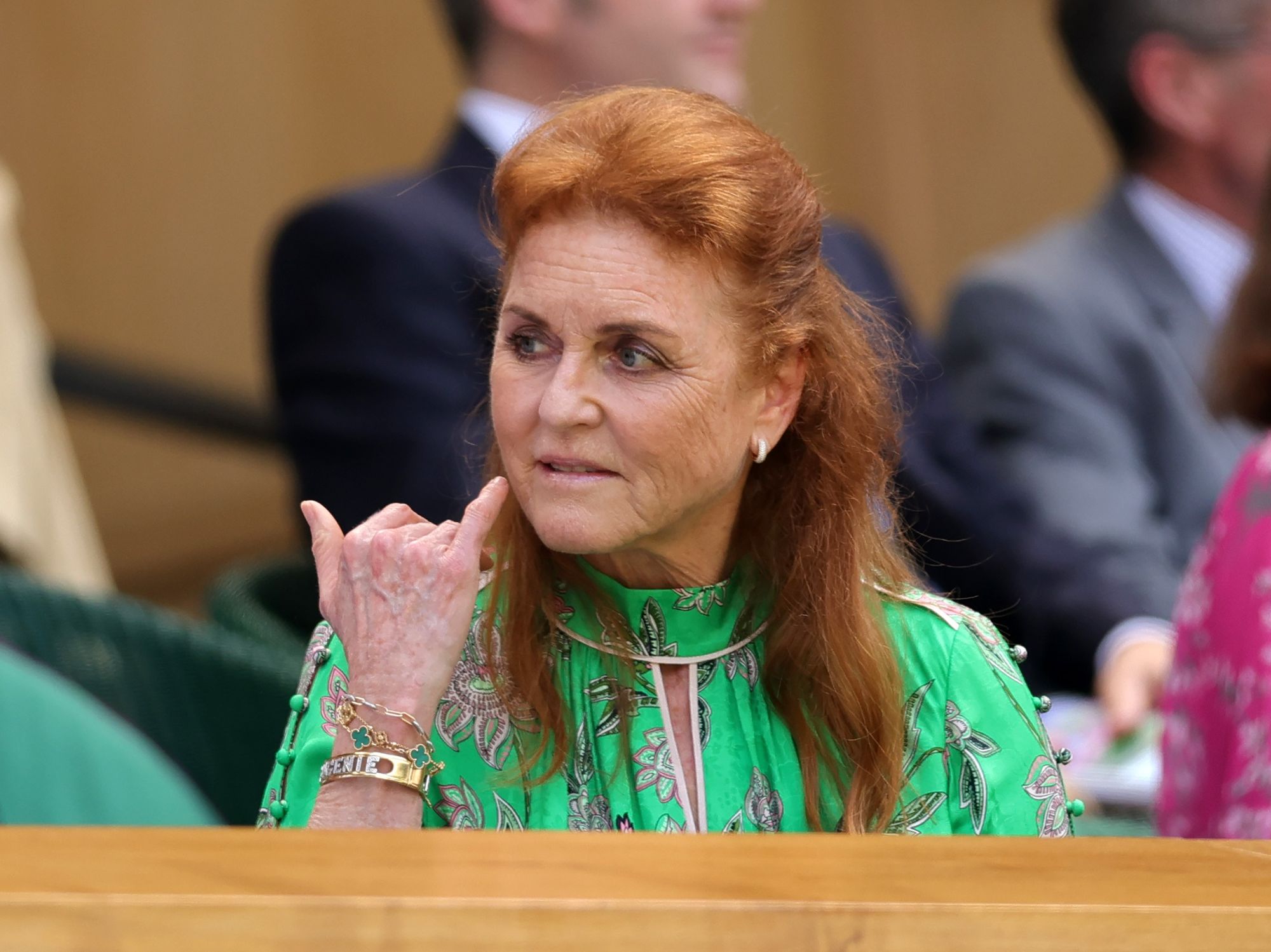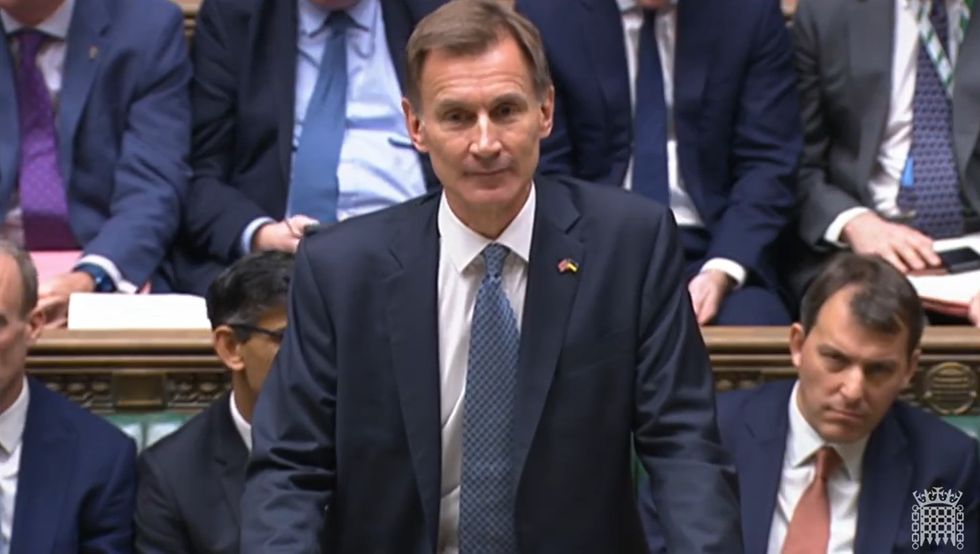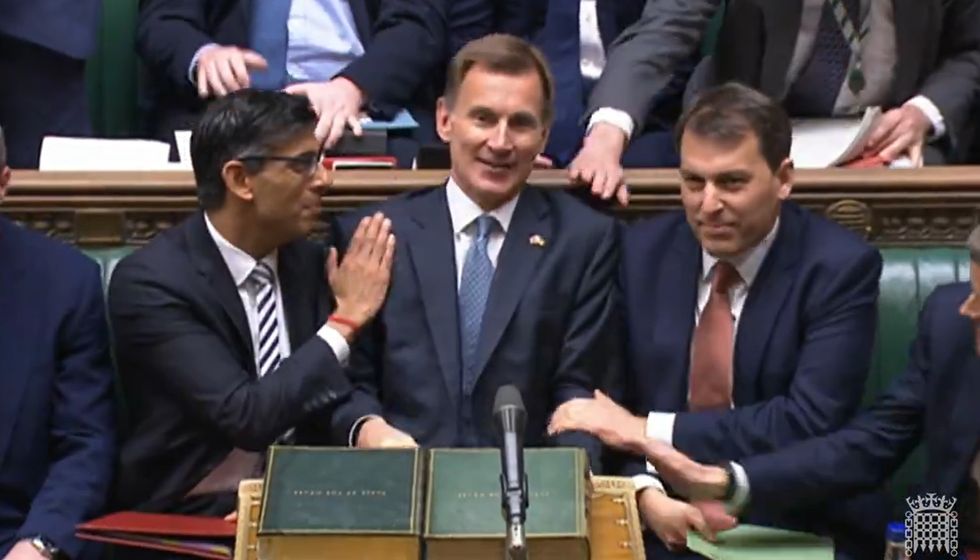WATCH LIVE: OBR releases latest public spending figures after confirming UK in 'recession'

Jeremy Hunt revealed a raft of tax cuts and public spending in his Autumn Statement on Thursday
Don't Miss
Most Read
The Office for Budget Responsibility (OBR) are set to release their latest public spending figures just hours after Jeremy Hunt revealed a raft of tax cuts and public spending in his Autumn Statement.
Jeremy Hunt
House of Commons
During the Autumn Statement, Mr Hunt confirmed that the OBR has said “global factors are the primary cause of current inflation”.
Mr Hunt told the Commons: “The Office for Budget Responsibility confirms global factors are the primary cause of current inflation. Most countries are still dealing with the fallout from a once-in-a-century pandemic.
“The furlough scheme, the vaccine rollout, and the response of the NHS did our country proud – but they all have to be paid for.
“The lasting impact on supply chains has made goods more expensive and fuelled inflation, this has been worsened by a Made in Russia energy crisis.”
While Mr Hunt said the OBR forecast is the UK’s inflation rate will be 9.1 percent this year and 7.4 percent next year.
He went on: “They confirm that our actions today help inflation to fall sharply from the middle of next year. They also judge that the UK, like other countries, is now in recession. Overall this year, the economy is still forecast to grow by 4.2 percent.
“GDP then falls in 2023 by 1.4 percent, before rising by 1.3 percent, 2.6 percent, and 2.7 percent in the following three years. The OBR says higher energy prices explain the majority of the downward revision in cumulative growth since March. They also expect a rise in unemployment from 3.6 percent today to 4.9 percent in 2024 before falling to 4.1 percent.”
Mr Hunt delivered his Autumn Statement on Thursday
House of Commons
During his Autumn Statement, Mr Hunt announced:
– The threshold at which the 45p top rate of income tax is paid will be reduced from £150,000 to £125,140, although different rates apply in Scotland.
– The income tax personal allowance, higher rate threshold, main national insurance thresholds and the inheritance tax thresholds will be frozen until April 2028, something which will result in more people paying more tax as a result of “fiscal drag” as wages increase.
– The windfall tax on oil and gas giants will increase from 25% to 35% and a 45% levy on electricity generators will help raise an estimated £14 billion next year.
– Tax-free allowance for capital gains will reduce in 2023-24 from £12,300 to £6,000 and again to £3,000 in 2024-25.
– Electric vehicles will no longer be exempt from vehicle excise duty from April 2025, to make the motoring tax system “fairer”.
– Government spending will continue to increase in real terms every year for the next five years, but at a slower rate than previously planned.
– Stamp duty cuts announced in Mr Kwarteng’s mini-budget will now be time-limited, ending on March 31 2025.
– The Government would protect the increases in departmental budgets already set out in cash terms for the next two years, meaning real-terms cuts due to inflation and pressure on public sector wages.
– The defence budget will keep meeting the Nato target of 2% of GDP but the overseas aid budget will not be returned to its goal of 0.7% of national income “until the fiscal system allows”.
– An extra £2.3 billion per year will be invested in schools in England over the next two years.
– The implementation of social care reforms will be delayed for two years.
– The NHS budget in England will increase by an extra £3.3 billion in each of the next two years.
Stay tuned for all the latest developments with GB News' live coverage.












